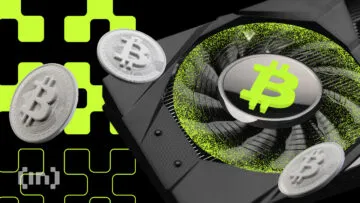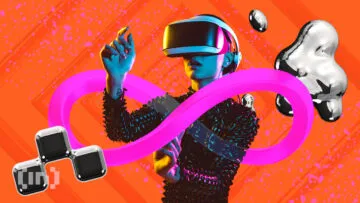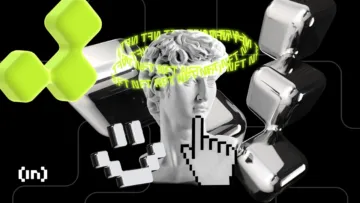In this episode of the BeInCrypto video news show, host Jessica Walker will provide some updates on Cardano’s hotly anticipated ‘hard fork,’ which met with underwhelming enthusiasm according to Monday’s early deals.
Cardano’s native token ADA was down 10%, trading around $2.35 dollars in a broadly negative market for the crypto market.
On Sunday evening, the Cardano blockchain was upgraded successfully with a ‘hard fork’ called Alonzo. It enables the use of ‘smart contracts’, which provide the basis for an ecosystem of decentralized applications, finance and, most likely, increasingly popular NFTs.
So if this is good news, why did the token drop? Isn’t this growing Cardano ecosystem enough to make buyers happy? Keep watching to get all the answers!
/Related
MORE ARTICLES
Bitcoin Critic Peter Schiff Mocks Hodlers After MicroStrategy Sells 700 BTC

The Future Of The Metaverse Is Open

Revolutionizing the Art World: An In-Depth Look at Art Tokenization
FTX: How to Prevent a Similar Dumpster Fire
FTX Japan Will Begin Customer Refunds In February 2023
Pi Network (PI) Listing Sparks Controversy as Price Skyrockets
Expectations
Cardano is a public blockchain that was founded by Ethereum co-founder Charles Hoskinson and developed by his research firm, IOHK. It’s designed and developed uniquely through a phased roadmap and is based on peer-reviewed computer science. It’s also among a number of newer blockchain systems that aim to provide more environmentally sound cryptos versus Bitcoin and challenge the popularity of Ethereum.
IOHK, the company behind Cardano, in a blog post, tried to lower expectations from the enabling of smart contracts: “There are high expectations resting on this upgrade. Some unreasonably so.”
They also added that “Cardano watchers may be expecting a sophisticated ecosystem of consumer-ready dApps available immediately after the upgrade. Expectations need to be managed here. We expect to see projects deploy through September and October, and accelerate through Q4.”
Criticism
While Cardano pledged to rival Ethereum’s dominance in hosting DeFi and Web 3.0 applications, the project has garnered criticism for failing to deliver smart contract functionality until now despite launching in September 2017.
Dominic Williams, founder of rival platform Internet Computer, was critical of Cardano, stating“It amazes me that this chain had been in the market for 2 years, and is only just adding support for smart contracts, and people are happy with this progress.”
There could be a touch of jealousy here, as Internet Computer hasn’t managed to spark the enthusiasm of the broader crypto community, with its project deemed as too centralized. At the same time Cardano appears to be keeping its developers focused and engaged.
Cardano also got some stick in early September after the first decentralized application (DApp) to launch on its testnet encountered issues relating to failed transaction processing. Outspoken Ethereum fan Anthony Sassano tweeted also made fun of Cardano for taking six years of research and still not being able to provide concurrent transaction processing.
Bet Won
Still, there was a bit of positive coverage for Cardano when the Alonzo update was announced. Critics were so confident against Cardano that they bet it would never be able to launch an NFT marketplace or a dApp ecosystem.
The information markets platform Polymarket was among the first to bet Cardano would not see Smart contracts or dApps by the end of this year along with a bet that the price of ADA won’t touch three dollars either, and the platform has lost all the bets placed against Cardano now.
Hoskinson took to Twitter to remind the platform to pay $50,000 to a charity of Hoskinson’s choice.
Recap
Despite its detractors, the hype for Cardano’s upgrades recently drove its native token, ADA, into record highs. It has rallied 192% from a local low of around $1 dollar in late July to touch $3.10 dollars on Sept. 3. ADA is also up more than 1,600% since the start of 2021.





